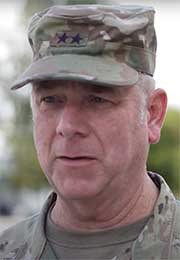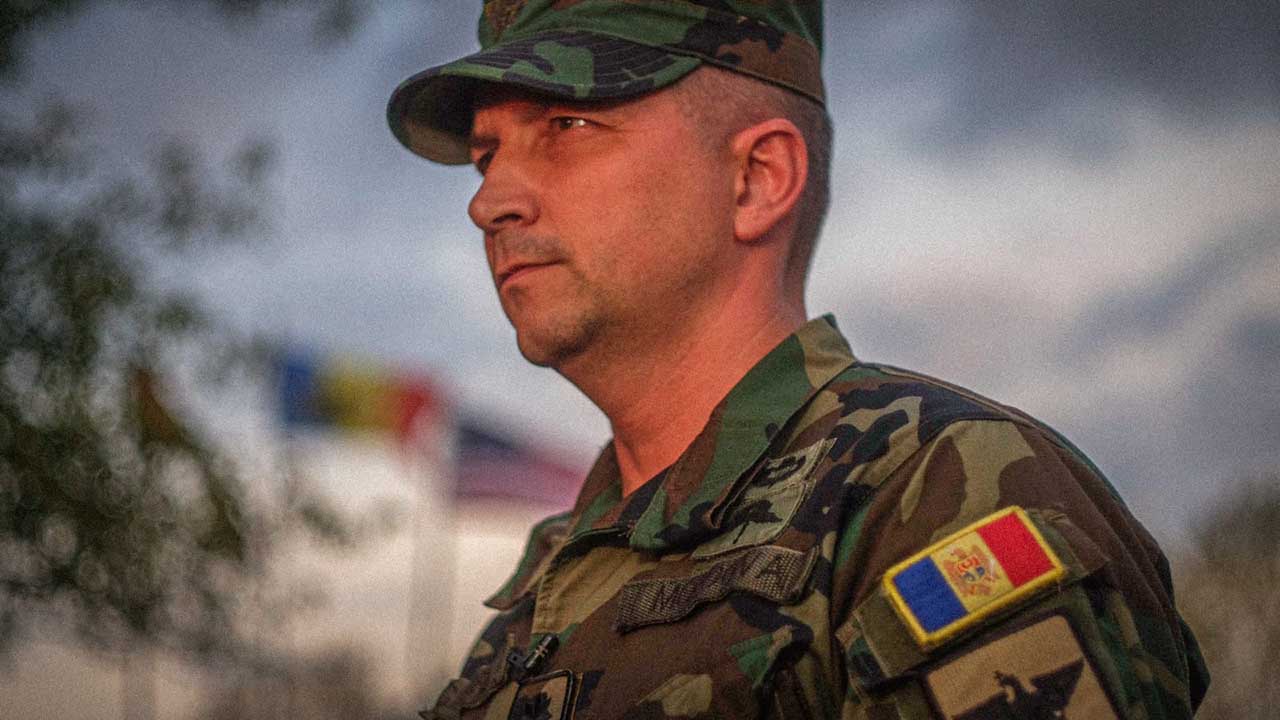Part 2
Moldova Turns to Old Friend as War Rages on its Border
Small Eastern European nation turns to US National Guard State Partnership for training help
When Russia invaded Ukraine, neighboring Moldova put its plans to strengthen its military into hyperdrive, with its government and Western allies pouring money into Moldova’s small military. VOA Pentagon correspondent Carla Babb got an exclusive look at how the United States’ National Guard is trying to help Moldova and dozens of other militaries across the globe.
Transcript
As Moldovan forces practice firing their Soviet-era D-20 howitzers, U.S. forces are standing by.
Sgt. Joseph Gonzales is not part of the tens of thousands of active duty American forces that surged into Europe following Russia’s invasion of Ukraine in February 2022.
Sgt. Joseph Gonzales, North Carolina National Guard:
“So we’re here to help with the modernization of their processes to get them out of the kind of Cold War era.”
He is part of what’s known as the U.S. National Guard’s State Partnership Program.
Kent Logsdon, U.S. Ambassador to Moldova:
 Logsdon
“After the end of the Cold War, the United States looked around and said, ‘What can we do to help militaries?’ And one of the ideas was the State Partnership Program. So, a number of (U.S.) states stepped forward and were paired up with countries here in this region, and now actually the program is spread around the world.”
Logsdon
“After the end of the Cold War, the United States looked around and said, ‘What can we do to help militaries?’ And one of the ideas was the State Partnership Program. So, a number of (U.S.) states stepped forward and were paired up with countries here in this region, and now actually the program is spread around the world.”
This year marks the 30th anniversary of the State Partnership Program. Using less than 1% of the Pentagon’s budget, the program has paired National Guard forces from U.S. states and territories with militaries from more than 100 nations.
Kent Logsdon:
“It’s a very important relationship, and I don’t think it’s ever been as important as now.”
The North Carolina-Moldova partnership is one of the oldest.
Major General Todd Hunt, North Carolina National Guard:
 Hunt
“So we’ve been doing this partnership for 27 years, and the partnership has run the gamut of military-to-military engagements, whether its medical or casualty care to basic unit tactics.”
Hunt
“So we’ve been doing this partnership for 27 years, and the partnership has run the gamut of military-to-military engagements, whether its medical or casualty care to basic unit tactics.”
Col. Mark Almond, North Carolina National Guard:
“So as the North Carolina State Partnership Program we conduct multiple exercises, about 40 a year.”
This year’s exercises included rare maneuvers outside the familiar confines of Moldova’s military bases.
Col. Mark Almond:
“This is the first time that we’ve done that with Moldova.”
Carla Babb, VOA News:
“Wow, so this is new terrain for you?”
Col. Mark Almond:
“New terrain for me.”
As military convoys drove by, curious Moldovans pulled out their phones. Moldovans, Romanians and American troops from the 101st Airborne Division navigated in fields just a few hundred meters from a town as North Carolina National Guard trainers threw real-life obstacles in their path.
Capt. Ken Vilagos, North Carolina National Guard:
“We just experienced an unknown drone flying over our position, so the reaction drill that we’ve been trying to integrate with the Moldovan forces is to seek cover and lay down. They executed wonderfully, and it’s a great change from the first rep that we had earlier in the exercise.”
Training at night and day culminated in a multi-national live fire drill to retake territory from an enemy.
Every interaction, the military’s deputy chief says, steeped with a sense of purpose.
 Cirimpei
Brig. Gen. Sergiu Cirimpei, Moldova’s Deputy Chief of the General Staff:
Cirimpei
Brig. Gen. Sergiu Cirimpei, Moldova’s Deputy Chief of the General Staff:
“We all know that we have a war of aggression right by Moldova, so we have to improve.”
A goal now steeped with an increased sense of urgency as the Russia-Ukraine war rages on.



